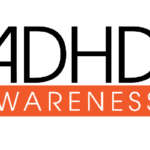Learn about Generalized Anxiety Disorder
Generalized Anxiety Disorder is just one of the anxiety disorders we treat, and among the most common. Nearly 20% of American adults experience an anxiety disorder in any given year, and over 30% of American adults experience an anxiety disorder sometime in their lives.
Generalized Anxiety Disorder, also known as GAD, is characterized by chronic anxiety and worry on most days for at least 6 months. People with Generalized Anxiety Disorder worry excessively about many everyday life circumstances such as personal health, work, school, and social interactions.
Anxiety is a normal reaction to stress, and everyone gets anxious from time to time. Anxiety can be beneficial in some situations – stress helps you deal with challenges, high-pressure situations such as athletics or important meetings, and even as a built-in warning system (the fight-or-flight stress response, for example).
However, when anxiety becomes hard to control and negatively affects your day-to-day life, it can be debilitating and should be treated as early as possible. Anxiety disorders are typically treated with medication, counseling, or a combination of both.
Symptoms of Generalized Anxiety Disorder
People with generalized anxiety disorder experience a combination of anxious thoughts or beliefs, physical symptoms, and changes in behavior such as avoiding everyday activities they used to do. Just like every person is different, everyone experiences anxiety differently and every anxiety disorder has different symptoms.
Anxiety disorders such as obsessive-compulsive disorder, panic disorder, and social anxiety disorder have unique characteristics.
Common Generalized Anxiety Symptoms
- Feeling restless, wound-up, or on-edge
- Being easily fatigued
- Fear and dread about things that may happen now or in the future
- Difficulty concentrating
- Shortness of breath
- Rapid heart rate
- Muscle tension
- Difficulty controlling the worry
- Sleep problems (difficulty falling or staying asleep or restless, unsatisfying sleep)
How Is Generalized Anxiety Disorder Diagnosed and Treated?
A Novum Psychiatry psychiatrist will ask you questions about your anxiety symptoms, medical history, and possibly perform tests to rule out other health problems that could be causing your symptoms.
Anxiety disorders, including GAD, are diagnosed when fear and dread of nonthreatening situations, events, places, or objects become excessive and uncontrollable. Anxiety disorders are also diagnosed if the anxiety has lasted for at least 6 months and it interferes with social, work, family, or other aspects of life.
Treatment typically includes medication, psychotherapy, or a combination of both. Cognitive Behavioral Therapy is one widely used form of psychotherapy for the treatment of generalized anxiety disorder.
Request an evaluation today with the experienced, professional Novum Psychiatry team.
Request Evaluation Today
We know that taking the first step can be difficult. Whether this is your first time seeking psychiatric care or if you are seeking a new provider, Novum Psychiatry can help. Our team of psychiatrists and therapists are committed to understanding your unique experience and working closely with you on a treatment plan to maximize the quality of your life.






